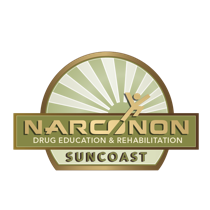Detox Is NOT Treatment

There are so many different types of treatment for substance abuse, how is a person supposed to determine what is the best fit for the addict? Drug addiction has existed for many, many years and various means and methods of dealing with it have been created. There’s detox, outpatient, short-term and long-term inpatient treatment, each with a different level of care. While many options are available, not all of them are the best solution.
Because each addict has varying life circumstances, financial situations, and time considerations as to how long they can spend at a treatment facility, short-term detoxes have been more and more misused and substituted for actual rehab programs. The fact of the matter is, no matter how you look at it, detox is not treatment.
Traditionally, before an addict enters into treatment, they go to a detox first to get through their drug withdrawal and sickness from coming off of drugs. These programs give the addict a chance to fully withdraw from the drugs, however this is usually done with the help of other drugs. Drugs for the withdrawal, drugs for anxiety, drugs to help them sleep, drugs for the nausea, and drugs for the sadness they feel because they’ve screwed up, yet again. More often than not, addicts leave detox on more drugs than they came in on. Also, while in detox, an addict gets minimal counseling and no work is done on their actual problem.
That is what rehab is for. The idea of detox is to get a person physically withdrawn from the narcotics they are doing, help them regain some of their physical health and get them prepared to enter into a treatment program. But lately, that’s not the scene.
Detoxes are now being used as solutions for drug addiction. They’re extremely short-term, maybe 7-10 days at the most and they require no work on the addict’s part to get off drugs.
Some addicts may think:
“I can beat this…I just need to get through the withdrawal and I’ll be fine.”
“I can’t get enough time off of work…I’ll just go to detox.”
Or families may think:
“He just needs to get into a detox so he can get back to work.”
“She’s been to rehab 7 times…she just needs to get on Suboxone.”
Any addict who thinks they just need to detox and they’ll be fine is sorely mistaken. The addict who thinks detox is all they need will usually leave detox only to find themselves back there again a few weeks or months later.
There’s a reason why they need detox again. They go in, come out, go in, come out and nothing ever changes because their addiction is never treated. As far as the work excuse goes, no addict is going to keep a job while they’re fighting off this kind of demon on a daily basis. If they don’t get real help to handle their problem, they’re going to end up losing that job they say they can’t leave anyways. And someone who’s been to rehab over and over, and nothing has worked, needs to find a different type of rehab.
The fact of the matter is that there are no short-term solutions to addiction that work on a long-term basis. Addiction is a multi-layered, deep-rooted problem which takes time to unravel. While detox helps with coming off drugs, there is no actual treatment for addiction. And addicts know this!
This pattern is commonly called “spin drying,” because that’s all they’re doing at detox. They’re going in, cleaning up, coming out, only to relapse again. It’s a quick solution to whatever problem the addict is having. Just like drugs.

Long-term treatment is the only type of help that has any shot at getting an addict clean. A study was recently covered in an article by the National Council on Alcoholism and Drug Dependence (NCADD), titled the “Addiction Treatment Aftercare Outcome Study.” The study described how the acute treatment model, like detoxes and 28-day programs, offer detoxification and stabilization, but don’t offer anything in the way of addressing the overall needs of an addict who is fighting off a full-blown addiction. The study showed how those who attended a 28-30 day program had a 54.7% success rate at staying sober, while those who attended a longer-term program showed an 84.2% success rate. Additionally, the study proclaimed the importance of aftercare once a person leaves treatment and stressed the importance of following a continuing care program. The study concluded that the longer an addict is enrolled in some type of treatment, the more likely they’ll be to stay sober on a long-term basis.
Detox cannot be used in lieu of real drug addiction treatment. While detoxes help an addict get through the uncomfortable detox, that’s where they also stop helping. In order to figure out their addiction and handle the underlying causes to why they use drugs to solve life’s problems, addicts need to enter into a long-term drug rehabilitation program. These programs can fully handle the needs of the addict while also giving them enough time to deal with their issues and put their lives back together. Addiction is a life and death situation and every attempt to get the addict drug free for good should be taken. Why go through another “spin dry” when you can actually get clean and stay clean? It’s all about choosing the right help.
For a free consultation, call Narconon Suncoast today at 877-850-7355
REFERENCE LINKS:
http://www.scirp.org/Journal/PaperInformation.aspx?PaperID=73388


